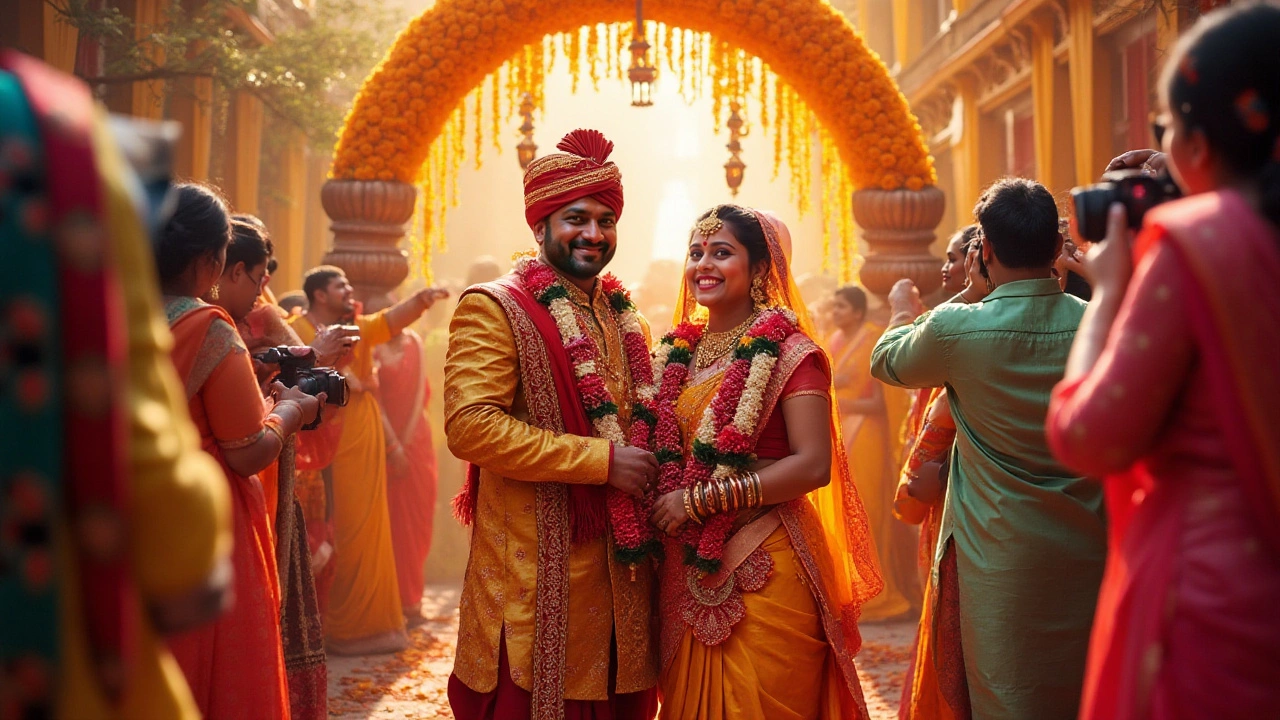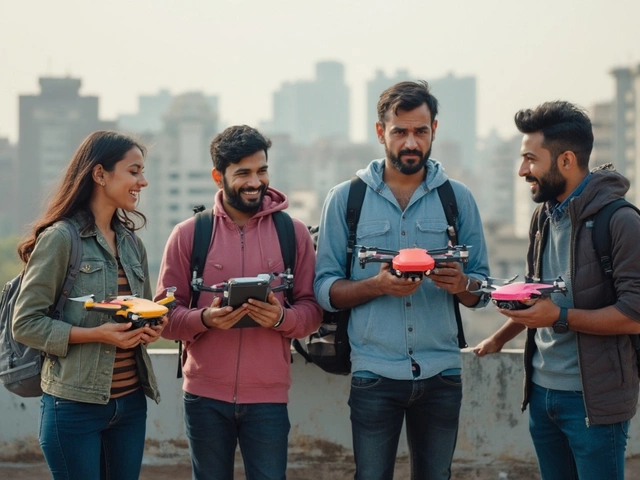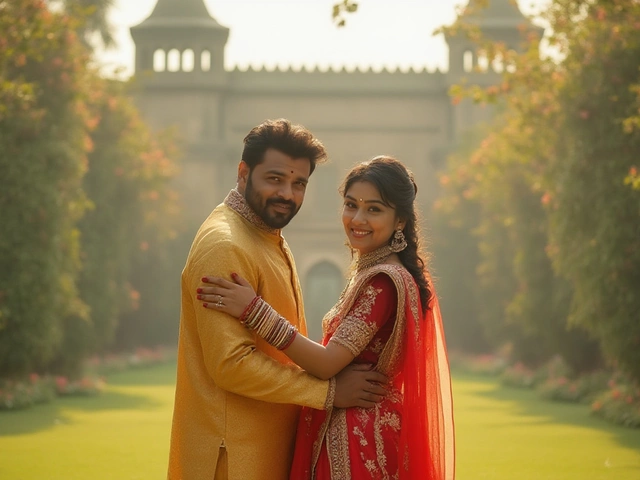Event photography in India is not just a profession; it's an art form interwoven with cultural richness. Photographers here capture moments in various social and corporate settings, each with its potential for good earnings. As we explore these opportunities, it becomes clear that some genres outshine others in terms of financial returns.
Wedding photography is often regarded as the gold standard within the country, reflecting the grandeur and vibrancy of Indian weddings. Beyond weddings, the corporate sector offers a steady stream of assignments, as businesses continually organize conferences and promotional events. The demand for capturing these formal gatherings has seen a noticeable uptick.
Moreover, destination weddings have added a new splash to the market. With exotic locations like Goa and Udaipur being frequent choices, photographers find new creative grounds and better paychecks. An understanding of regional cultural and religious events also provides lucrative opportunities to photographers who can encapsulate the essence of such gatherings.
To excel, building a portfolio showcasing versatility and a knack for storytelling through images can open doors to more opportunities. Knowing what parts of event photography hold the most potential can steer aspiring photographers towards a successful, fulfilling career.
- Thriving Wedding Photography
- Corporate Events and Conferences
- The Rise of Destination Weddings
- Cultural and Religious Celebrations
- Building a Successful Event Photography Business
Thriving Wedding Photography
In a country as culturally diverse and vibrant as India, wedding photography is more than just capturing moments; it is about storytelling and creating art. A typical Indian wedding stretches over several days and involves various rituals and ceremonies unique to the couple's culture and traditions. This diversity provides photographers with a canvas vibrant in colors and emotions to work with. The sheer scale of Indian weddings often involves hundreds, if not thousands, of guests, detailed decorations, multiple venues, and a plethora of events, all of which offer endless opportunities for breathtaking photographs.
Photographers often have the informal titles of 'capture magicians' in weddings due to the magical memories they create. Indian weddings are known for their opulence, and capturing these moments requires a blending of skills from portrait photography, documentary style shoots, and creative flair to capture intricate details like henna, ornate attire, and the interplay of emotions between families. This is compounded by the need to handle technical challenges like lighting variations across different venues and times of day.
According to a report by Business Insider, the Indian wedding market is estimated to be valued at over $50 billion, indicating the potential for photographers to secure financially rewarding projects.
-- Business Insider
A successful wedding photographer in India can earn significantly due to the willingness of couples to invest in making their special day memorable through professional photography. A well-rounded portfolio showcasing versatility in capturing candid, traditional, and contemporary shots can be paramount in establishing reputation and attracting new clients. Often, enterprising photographers expand their services to include videography and photo albums, adding additional revenue streams.
Skills apart, the personal connection between couples and their chosen photographers is critical. This relationship is built on trust, allowing couples to relax and enjoy their day, knowing their precious moments are captured perfectly. Word-of-mouth referrals and glowing testimonials on social media platforms like Instagram and Facebook often become the most effective marketing tool for wedding photographers.
Opportunities and Challenges
There are challenges, of course. The unpredictable nature of weddings means photographers must be adaptable and ready for anything. Keeping up with the latest trends, whether it be pre-wedding shoots or post-event portrait sessions, also requires continuous learning and adaptation. Not to forget, the competition is stiff, with numerous talented photographers entering this flourishing market segment. Photographers often build niche specializations, like destination weddings or traditional styles, to set themselves apart.
The rise of destination weddings has further revolutionized the wedding photography market in India. Exotic destination settings offer unique creative opportunities for visual storytelling. With popular sites like Udaipur's palatial venues or Goa's pristine beaches, photographers are now traveling the length and breadth of the country. Teams that include stylist coordinators for attire, makeup artists, and photo editors are often part of this avant-garde to ensure seamless production of aesthetically pleasing images.
Lastly, keeping abreast with technological advancements in photography equipment and techniques is essential for delivering top-notch professional quality results. High-quality software for post-processing and the use of drones for aerial shots can provide a competitive edge. The future of wedding photography in India is promising, with the industry on a growth trajectory as it aligns with the aspirational dreams of couples seeking not just a record, but an artistic chronicling of their most cherished day.
Corporate Events and Conferences
Capturing the essence of corporate events and conferences is a nuanced craft that demands a keen eye for details. In India, the fast-paced corporate world offers a rich tapestry of events where photographers can thrive creatively and financially. The surge in business meetings, product launches, and networking events has made this genre increasingly lucrative. Photographers in this niche must adapt to the rapid changes, from capturing the precise moment a CEO delivers a passionate keynote to photographing the intricate branding details that subtly convey a company's ethos.
A successful corporate event photographer understands the importance of blending into the background while being ready to snap action as it unfolds. They need to capture images that project professionalism and the desired brand image. Many multinational companies allocate significant budgets for events photography, ensuring that every detail is impeccably documented. For instance, tech giants often host grand product reveals where the display of the product's innovation and design through imagery plays a critical role in post-launch marketing strategies.
Corporate photography requires not only technical proficiency but also interpersonal skills. Building rapport with event organizers to understand specific needs and objectives is crucial. Photographers must coordinate with PR teams, align with advertising goals, and sometimes even prepare for unexpected celebrity appearances or spontaneous product announcements. In such dynamic environments, preparedness is key. A study by Trendee Business Journal suggests that hiring professional photographers for corporate events can increase post-event branding effectiveness by up to 35%. Companies often share these images in press releases, social media, and annual reports, adding substantial value to the investment.
The landscape of corporate event photography extends beyond the boardrooms. Workshops, team-building retreats, and industry exhibitions are part of this exciting domain. These events often have unique photo opportunities, from interactions during breaks to candid moments of brainstorming sessions. Quality images from such events can help businesses strengthen their narrative, showcasing a brand's culture, its industry relevance, and leadership in thought. Amarpreet Singh, a noted event photographer, once remarked,
"Companies see value in tying their story into a narrative shown through powerful images. It's not just recording an event but creating persuasive imagery that reflects the company’s aspirations."
Investing time in understanding diverse corporate cultures across India can benefit photographers greatly. Different industries have varying expectations and styles, and a photographer's adaptability can become a significant advantage. Creating a compelling portfolio that illustrates versatility across different types of corporate events is highly beneficial. Networking within the industry, as with any business, is crucial. A word-of-mouth reference from one successful event can lead to many more jobs in this interconnected corporate world, proving once again that in photography, your work often speaks for itself.
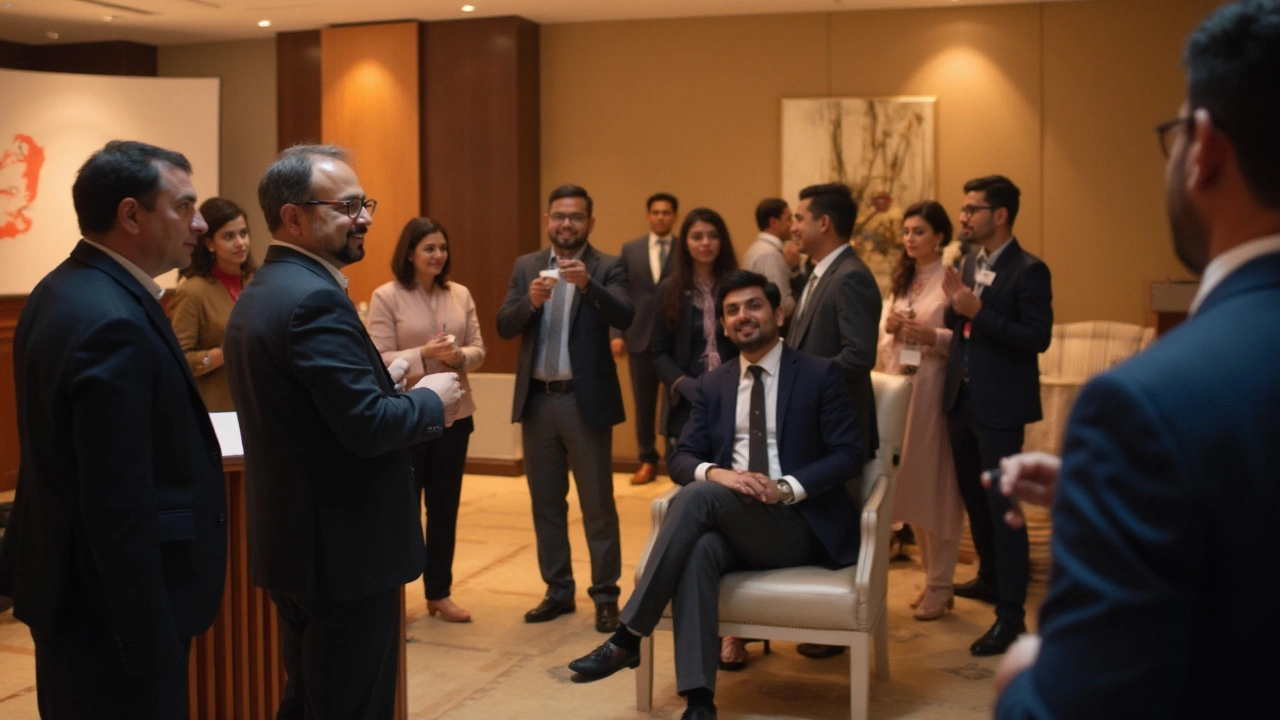
The Rise of Destination Weddings
Destination weddings in India have revolutionized the traditional landscape of nuptial celebrations, blending picturesque locations with rich cultural rituals. This trend is gaining momentum, with many couples opting to tie the knot amidst the serene backdrop of beaches, historic palaces, or lush countryside. Destination weddings offer a dual benefit: a vacation-like experience for guests and an intimate setting that leaves a lasting impression.
These weddings have become a significant part of the event photography scene in India. Due to their specialized nature, photographers must be adept at capturing not just the moments, but also the essence of the location—be it the vibrant hues of a Rajasthani desert sunset or the cool blues of a Kerala beachfront. In 2023, an estimated 25% of Indian weddings incorporated some element of travel, underscoring the popularity of this concept.
Several factors contribute to the allure of destination weddings. For one, they provide a fairy-tale setting that is simply unattainable in urban venues. They also allow for more tailored and memorable experiences, as only close family and friends usually attend. According to the Wedding Wire India, "Destination weddings are about creating a lifetime of memories in a place that reflects the uniqueness of the couple." These weddings often spur a week-long festivity, merging traditional rituals with contemporary celebrations.
The economic boost destination weddings bring to the locations is substantial. Local businesses, from caterers to decorators and transport providers, flourish. Photographers capitalize on these events by forming collaborations with local vendors, which ensures seamless operations and helps them offer comprehensive packages to clients. A good photographer will scout locations in advance to understand the light, layout, and cultural significance, ensuring every photograph tells a compelling story.
Challenges like logistics, high costs, and planning complexities are very real. Yet, these can be mitigated by meticulous planning and open communication with both vendors and clients. A skilled photographer not only captures captivating images but also guides the couple through potential hurdles, transforming challenges into beautiful memories. As a photographer in India, specializing in destination weddings connects you to a higher clientele who value artistic expression and are willing to invest in quality.
Cultural and Religious Celebrations
In the diverse cultural tapestry of India, event photography finds its most vibrant and colorful expression through cultural and religious celebrations. These events reflect the country's rich heritage and are steeped in age-old traditions, offering photographers an unparalleled opportunity to capture timeless moments. Festivals such as Diwali, Holi, Eid, and Christmas, are celebrated with great enthusiasm across regions, each providing a distinctive atmosphere and photographic challenge. These occasions burst with colors, emotions, and activities, presenting photographers with the chance to document the cultural nuances that are often missed in other settings.
Since these celebrations are so integral to Indian society, almost every family opts to capture these moments professionally. The vivid hues during Holi, with people drenched in colorful powders, or the serene beauty of Diwali, where flickering diyas light up the night, are not just visually stunning but culturally significant. According to a report by the Federation of Indian Chambers of Commerce and Industry (FICCI), the photography market related to festivals and religious events sees a significant uptick in business during these periods, accounting for about 20% of annual business for some photographers.
"Festivals in India are not just celebrations; they are a way of bringing communities together. Capturing these moments enables a photographer to tell compelling stories that speak to the core of human connection," states Arundhati Roy, an acclaimed cultural historian.
Successful photographers in this genre emphasize the importance of understanding the cultural context of each event to truly capture its essence. It is not just about taking pictures but rather documenting the story behind the festivities, making the onlooker feel the energy and emotions captured in each frame. They must navigate through bustling crowds and unpredictable conditions, which requires both skill and agility.
When working these events, photographers often choose to use a mix of wide-angle lenses to capture sprawling processions and closer lenses for intimate portraits, allowing them to highlight individual stories within the larger tapestry of celebration. Capturing traditional dances, local music, and the myriad rituals performed offers a full spectrum of what India truly has to offer during these celebrations. Being prepared for long durations—sometimes entire days—is essential, as significant moments can happen at any time during these vibrant festivals.
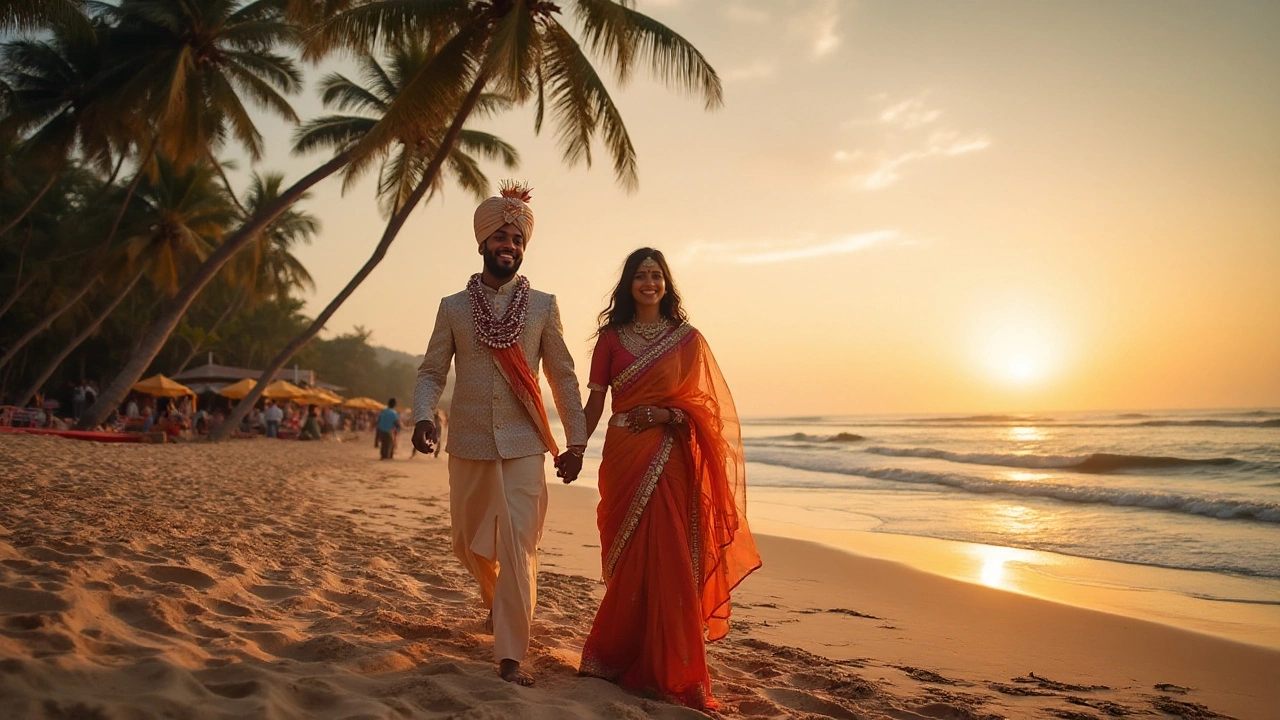
Building a Successful Event Photography Business
Starting and growing a successful event photography business in India requires a combination of skill, strategic planning, and an understanding of the market. One must first hone the art of photography itself, ensuring technical expertise in handling cameras, lighting, and post-production editing software. This technical foundation is what will enable you to deliver the high-quality images that clients expect. However, it's not just about capturing moments; it's about telling stories through your camera lens, capturing the essence of events, whether they are weddings, corporate gatherings, or cultural festivities.
Developing a distinct style that sets you apart from other photographers can be crucial. Your unique perspective can be a significant selling point, and potential clients often look for something special that reflects their vision. Showcase this individuality through a well-curated online portfolio. With the digital age being as dominant as it is, having a strong online presence is non-negotiable. A professional website and active social media profiles can serve as effective marketing tools. Regularly updating them with your best work, client testimonials, and engaging content will help build credibility and attract new clients.
Networking plays a pivotal role in the event photography industry. Establish relationships with event planners, catering services, venue managers, and even other photographers. Collaborations and partnerships can often lead to referrals, which are a trusted way to gain new business. Attending industry conferences, workshops, and local business events can also offer opportunities to meet potential clients and collaborators. Additionally, consider joining photography associations to access resources and connect with fellow professionals.
Pricing your services appropriately is another important consideration. You must balance affordability with the value of your skills and the quality of your service. Researching market rates in different segments of the industry can help you set competitive yet profitable prices. Some photographers choose to offer tiered packages that can cater to a broad range of clients, from those with limited budgets to those seeking premium services. As you build your reputation, don’t hesitate to adjust your pricing structure to reflect your growing experience and portfolio.
Understanding different types of events can also enhance your business prospects. For instance, wedding photography often requires an emotional focus and sensitivity toward diverse cultural traditions. In contrast, corporate events might demand a more formal photographic style. By diversifying your experience across event types, you not only broaden your skillset but also your market appeal. An investment in continuous learning through workshops and courses can keep your style fresh and relevant, giving you an edge over the competition.
"In photography, there is a reality so subtle that it becomes more real than reality." – Alfred Stieglitz
Finally, exceptional customer service can be the differentiator in this competitive industry. Prompt communication, a professional demeanor, and delivering on time are essential practices that lead to satisfied clients and repeat business. Listening to client needs and offering personalized service can turn a one-time client into a loyal advocate for your brand. Encouraging satisfied clients to leave reviews and refer their friends can organically grow your business without additional marketing costs. Remember, in event photography, much like any other business, the key to success often lies in the relationships you build and the trust you cultivate with your clients.
